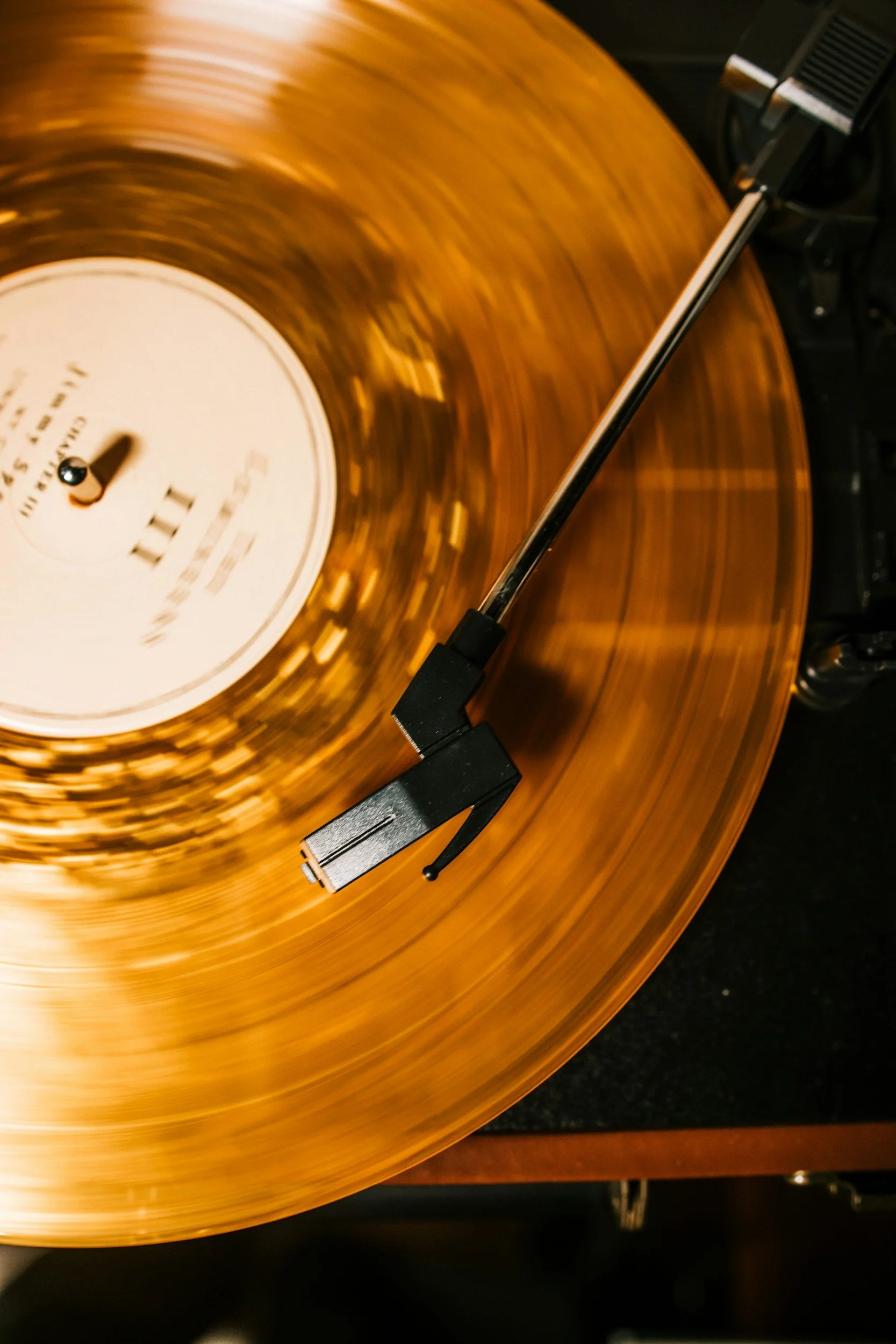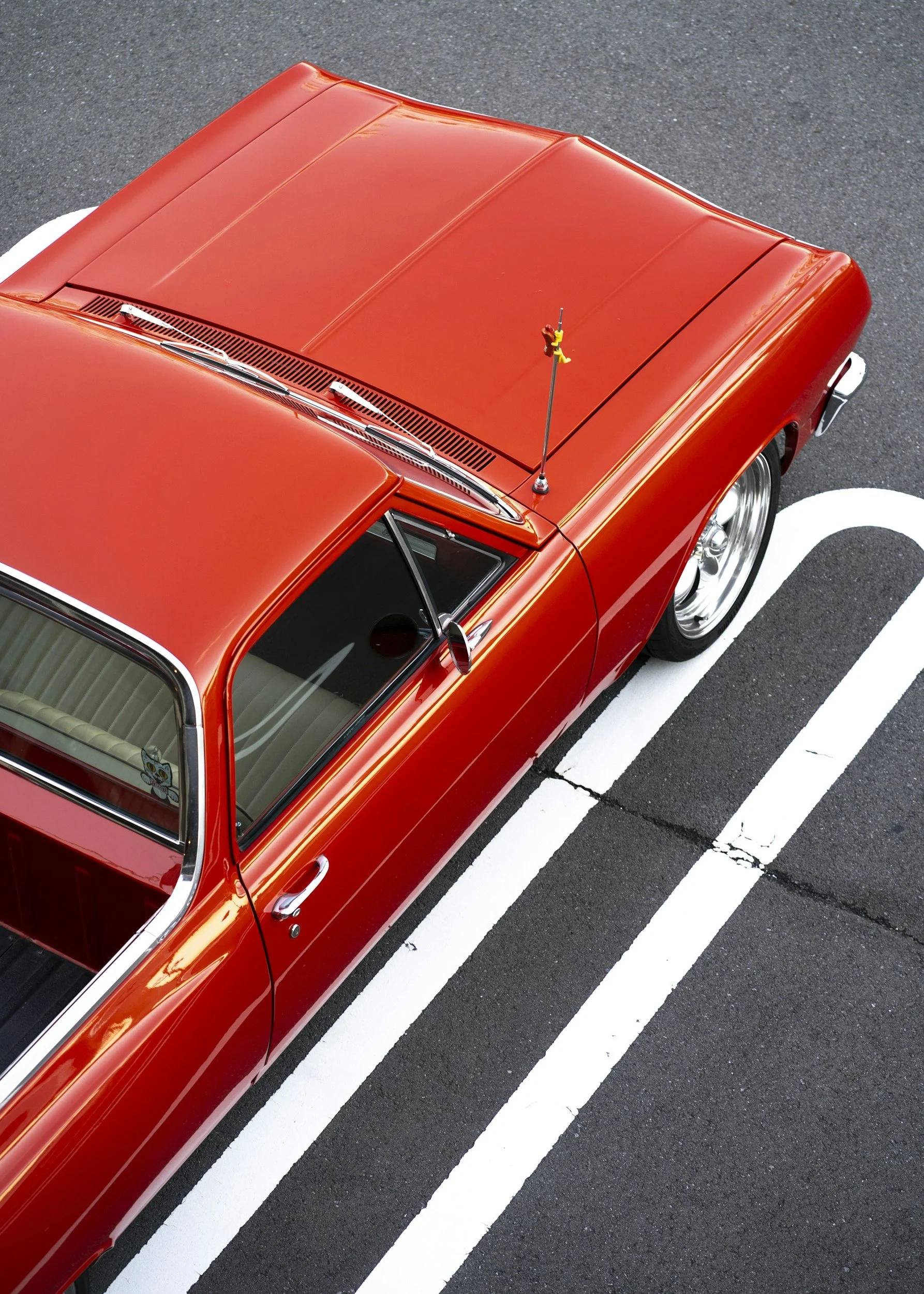To Be or Not to Be a Badass
“I’m a tax preparer now,” I said, somewhat sheepishly. Being a tax preparer isn’t exactly what anyone dreams of when considering professions, and I am probably more surprised than anyone else that those words consistently come out of my mouth now.
But it was the woman’s response that surprised me even more. “Wow, you’re a badass,” she said, without an ounce of irony.
Never before in my life had I been called a badass. I had been called everything that is the antithesis of a badass ever since childhood, including shy, too sensitive, nice (but not in the nice way), sweet, quiet, not assertive enough—you get the idea. And then, in the eighth grade, my science teacher decided that my timid personality equaled future failure, even though I was good at science. Actually, I was good at all subjects. I was a straight-A student.
You’re probably thinking I was that too sensitive 13-year-old who misunderstood something my science teacher said. Unfortunately, she put the word “failure” in writing. You see, at my junior high school, parents didn’t have to attend parent-teacher conferences unless there was a perceived problem. My parents were never asked to attend as I was the quintessential good girl, but that year, my mom got the call. In an effort to be transparent, the teachers had to supply the students with a written summary of why they their parents were being asked to speak to the teacher. My summary clearly said that my timid personality would lead to failure as an adult. As you can imagine, I was crushed and humiliated.
However, on the day of the conference, my teacher had nothing to say, and I noticed that the summary of my personality and its looming failure were crossed out (but still readable). Obviously, someone had told her that you can’t call a straight-A student with no other apparent problems a failure. Unfortunately, the damage was already done.
From that point on, all through college and graduate school, every time I didn’t speak up in class, my heart would sink because I knew it would lead to a life of disappointment. I became even more self-conscious, not wanting to draw attention to myself, creating a vicious cycle. As I progressed into young adulthood and job interviews, that idea constantly lingered in the back of my head. The big “F” word. No matter what I did succeed in, I always expected there to be a failure attached. As a young adult, there was no badassery in sight.
I can tell you that the onset of middle age brings some peace with it. As I strolled toward 50, what I once viewed as failure, I was able to see as merely a valley in the ups and downs of life. I felt I had more valleys than peaks, and I certainly didn’t feel like a badass, but neither did I believe I had failed as drastically as my teacher expected me to. Over the years, I had still gotten my straight As, and my degrees, and jobs. I managed to move to Los Angeles by myself and have a successful career in the entertainment industry. I even followed my creative pursuits, writing screenplays and making a web series.
But, of course, life has a way of throwing a wrench at your head. A week before my 50th birthday, the most unthinkable, most ridiculously stereotypical thing happened. My (younger) husband told me he wanted to leave me, and the words of my eighth-grade teacher rushed back into my head. Not only had I failed spectacularly at what I thought was a successful marriage, but I had also become the dreaded stereotype of an aging woman who is no longer palatable to her husband.
Like many middle-aged women facing a surprise divorce, I was utterly shocked. No, I did not see it coming. I really did not. If other people had seen it coming, they graciously assured me they had not either. I don’t know how others cope with this kind of life-shattering news, but I did all the things. I cried. I screamed (sorry, neighbors). I sobbed. I didn’t get out of bed for entire days. Not really the behavior of a badass.
All I knew, in that moment, was that if I was going to survive what felt like the death of my chosen family and my future, I had to keep going forward, even if it was by one tiny step at a time. I had to pull and tug and push myself out of bed. I had to grasp onto something for dear life.
I decided tiny steps were not the answer. I set my sights on walking El Camino.
For those of you who don’t know, El Camino is a hike through the hills and villages of Spain. There are many routes of El Camino, but you don’t get the official stamped form declaring that you are a true pilgrim unless you walk at least 100 kilometers (approximately 72 miles). I recruited two friends to accompany me, and that October, we walked. We walked 72 miles in five days in pouring rain. I walked much of El Camino quietly, at my own pace, letting others with more energy pass me by. I didn’t feel the need chat with strangers or be anyone other than myself. My throbbing hips, knees and feet took precedence over my stinging heart. A good meal and a glass of wine with my friends after a long day of hiking distracted my heartbroken soul. Rounding that last corner, the towers of the cathedral of Santiago de Compostela emerged, their spires grazing the sky, reminding me what I was capable of accomplishing, with or without the approval of a husband or a science teacher.
But did El Camino bring out my inherent badass? I returned home that November to a stalled divorce mediation and hints of another woman. I also had to face the reality that my husband had been the primary breadwinner, and despite the promise of alimony, I needed a new job. One that required a set of skills I could learn relatively quickly, that could weather recessions and pandemics and go anywhere, and that provided some downtime to continue my creative pursuits. Dreams don’t die in middle age, after all.
So, when our accountant floated the idea of working for him as a tax preparer, I jumped in wholeheartedly, even though it wasn’t anything I would have considered when I was younger. And before I understood the whirlwind that is tax season, I was in the eye of the storm. I didn’t just start a new job—I started a new job in a new industry at a new company at a time when all I really had the energy to do was sit and stare out a window. But I did it. I did some crying on the hard days. Thankfully, there was no screaming. Dare I say I succeeded at it? No failure to be seen.
The thing about tax season, though, is the “season” part. It’s a non-stop race until that last hurdle is jumped and then it’s over. Soon, I was staring down the empty track of structureless days, and the sadness was creeping its way back in, as was the end of the divorce negotiations. I don’t know how the process of divorce goes for other people, but the end for me was brutal. Final negotiations led to final hurtful words that can never be erased from my memory, much like the words of a teacher to an impressionable young student so long ago. Nothing makes you feel like less of a badass then being so tired of the pain that you can’t stand up for yourself in the moment when you need to most. I just needed the hurt to be over. I needed to find a way to move on that didn’t involve a multi-day hike. I needed to heal.
Unfortunately, for me, the universe did not want to cooperate. Instead, I rolled my chronically unstable left ankle twice in two months, suffered a nasty sprain, and received a recommendation of surgery to repair my loose ligaments. Yes, those loose ligaments may have had something to do with a 72-mile hike I took. With a wide-open schedule, I booked the surgery.
Ankle ligament repair surgery requires the patient to be non-weight bearing on the affected foot for four weeks after surgery. We’re talking the not-even-touching-toes-to-the-ground type of non-weight bearing. Without someone to help you, things like getting a glass of water or simply going to the bathroom become a wrestling match of crutches and arms and your one good leg. I was newly divorced and lived alone, so I had to do it alone.
Surviving that sounds kind of badass, right? Well, I was downright terrified. I cried. I screamed a little, though no one was there to hear it. I begged whatever god or ancestor was listening to protect me. To help me feel the smallest bit better about my lonely place in the world. I did have people to help me. A generous friend who brought me home after surgery and made me chicken soup. Other thoughtful women who checked in by email every day, or brought me dinner, or just sent a kind note to cheer me up. But for the majority of those four weeks, I was on my own, and it was hard.
In fact, it was one of the hardest things I’ve ever had to do, emotionally and physically. I would much rather walk El Camino ten times over. No one tells you how impossible crutches are. My affected ankle barely hurt, but with arthritis in the hand that had to grasp those crutches and soreness in the healthy hip due to all of the extra work it was doing, I was in pain all the time. Bruises covered my body from losing my balance and catching myself on the edge of a countertop or the side of a chair. I finally ordered a knee scooter, only to have the shipping get delayed. I cried (but no screaming this time) and collapsed in a puddle, every night, after hopping to bed.
Once again, I had been completely hobbled by something in life. It’s funny how sometimes our bodies take on the emotional stories of our lives and play them out physically. I had often said that losing my husband felt like losing a limb—a part of me I couldn’t imagine living without, and then I had to live for four weeks without the use of an actual limb. I had to relearn how to do basic things, like keep my balance while opening my refrigerator door and standing on one foot. I had to soothe my own pain. I had to force myself to rest when necessary and push myself at times in order to heal properly. I would say I had no choice but to survive, but there is always a choice. I chose to fail repeatedly and then get back up and keep going.
And that’s when I finally realized, even though it may have taken me 51 years, a divorce, a Camino, and an ankle surgery, how very wrong my science teacher was. Yes, I have failed in life, not because of my personality, but because I am human, and sometimes being a human in this world is hard. But when I do find myself standing alone at a crossroads, I always make the choice to push through, like when I succeeded in an industry in which I was often the only woman in the room. Like when I walked 72 miles across Spain. Like when I took a tumble on my crutches and had to get myself back up. And like that thirteen-year-old girl who still showed up to science class every day and got an A even though her teacher had told her all she would do is fail.
When we picture a woman who is a badass, we usually conjure up the image of a svelte, athletic woman in a black leather catsuit who powerfully yet gracefully kicks aside anything or anyone who gets in her way. I have no problem admitting that I do not fit that image, but there are many paths to becoming a badass. Yes, I am a tax preparer, and a writer, and a middle-aged lady. I can still be shy in a crowded room. I make a concerted effort to be nice to people because I believe this world could use a little more nice. I’ve learned how to be more assertive when necessary and that I have a pretty high tolerance for pain, both the physical and the emotional kind. I have learned that failure is a part of every life, as is success, and not predetermined by personality.
And after everything I’ve been through, I realize now that, just like the lady said, I have grown up to be a badass.
-Teresa Vilaseca
During the pandemic, Teresa Vilaseca wrote two personal essays about how her backyard helped her process the death of her father. One was published in the online literary magazine HerStry, and the other was a 2022 Writer’s Digest Inspirational Essay Award winner. She also has an MFA in Film from Boston University and has placed in several screenwriting competitions. She currently lives in Los Angeles with her two mischievous pets and a yard full of friendly insects.







